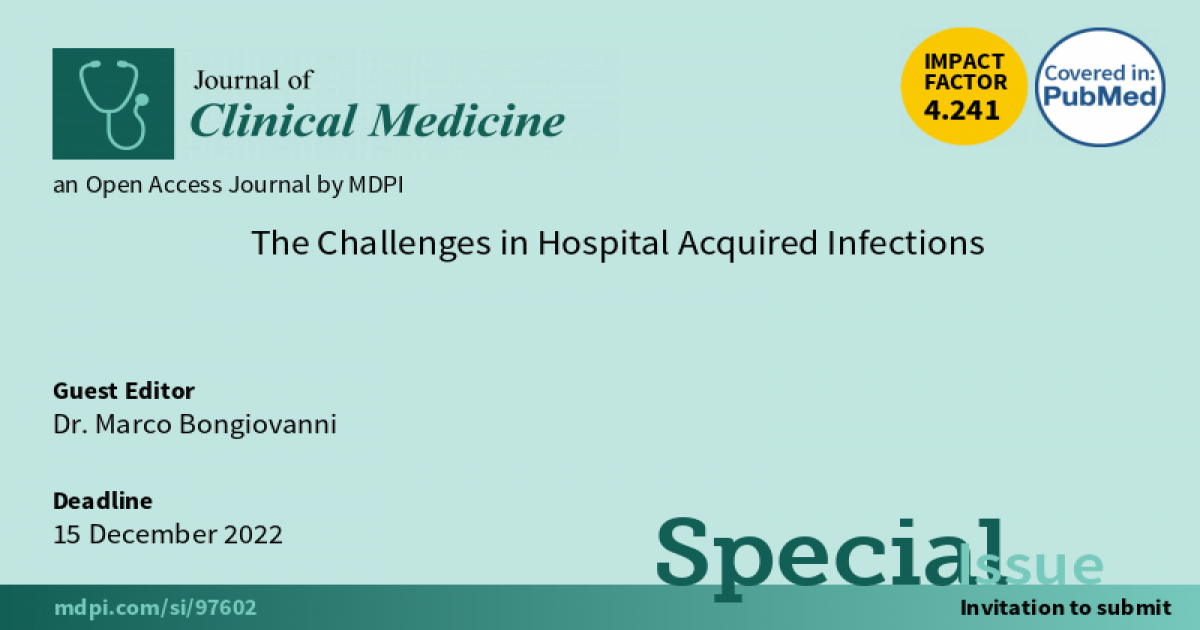The Challenges in Hospital Acquired Infections
A special issue of Journal of Clinical Medicine (ISSN 2077-0383). This special issue belongs to the section "Infectious Diseases".
Deadline for manuscript submissions: closed (15 December 2022) | Viewed by 5248

Special Issue Editor
Interests: antimicrobial stewardship; HIV infection; COVID-19 infection
Special Issues, Collections and Topics in MDPI journals
Special Issue Information
Dear Colleagues,
Hospital-acquired infections (HAIs) are one of the most important emerging healthcare problems. The growing number of conditions that lead to the hospitalization of individuals presenting with increasingly severe clinical conditions and immunosuppression, in addition to the increased resistance to antimicrobial agents, indicates the importance of HAI in public health management. Furthermore, HAIs can result in a prolonged hospital stay, long-term disability, increased resistance of microorganisms to antimicrobial agents, increased risk of mortality, and a massive additional financial burden for the health system and for patients and their families
This Special Issue will publish up-to-date data on novel perspectives in the management of HAIs, proposing strategies for better optimizing clinical and therapeutic approaches.
Dr. Marco Bongiovanni
Guest Editor
Manuscript Submission Information
Manuscripts should be submitted online at www.mdpi.com by registering and logging in to this website. Once you are registered, click here to go to the submission form. Manuscripts can be submitted until the deadline. All submissions that pass pre-check are peer-reviewed. Accepted papers will be published continuously in the journal (as soon as accepted) and will be listed together on the special issue website. Research articles, review articles as well as short communications are invited. For planned papers, a title and short abstract (about 100 words) can be sent to the Editorial Office for announcement on this website.
Submitted manuscripts should not have been published previously, nor be under consideration for publication elsewhere (except conference proceedings papers). All manuscripts are thoroughly refereed through a single-blind peer-review process. A guide for authors and other relevant information for submission of manuscripts is available on the Instructions for Authors page. Journal of Clinical Medicine is an international peer-reviewed open access semimonthly journal published by MDPI.
Please visit the Instructions for Authors page before submitting a manuscript. The Article Processing Charge (APC) for publication in this open access journal is 2600 CHF (Swiss Francs). Submitted papers should be well formatted and use good English. Authors may use MDPI's English editing service prior to publication or during author revisions.
Keywords
- hospital infections
- antimicrobial stewardship
- optimizing antibiotic treatment
- multi-drug-resistant bacteria






